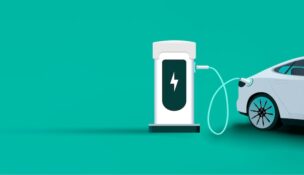The Economist: Do individuals and businesses behave rationally?
Tucker Hart Adams //May 1, 2010//
One of the basic premises of economic theory is that individuals behave rationally – they take all of the available information, analyze it and then act appropriately. Really? Listen to the head of the Cleveland Clinic, Dr. Delos Cosgrove:
Three things – smoking, diet and lack of exercise – cause 40 percent of premature deaths in the U.S. They contribute to 70 percent of the chronic diseases … and that’s 75 percent of the cost of health care. (Fortune, 3/1/2010)
It’s not that we are stupid. We know perfectly well that we should eat correctly and exercise every day, yet a huge percentage of us are overweight – heart attacks waiting to happen.
We’re too busy to work out in the morning, we grab a hamburger and fries for lunch, we snack on whatever goodie has been left next to the coffee machine mid-afternoon, and we’re too tired when we get home at the end of the day for any exercise more strenuous than lifting a beer and clicking the remote to watch a couple of hours of mindless television. We know what we ought to do, but we don’t act appropriately on that information.
We can be equally irrational in our financial decisions. We buy a big car that guzzles gas, turn up the thermostat instead of putting on a sweater and then complain about energy prices and our dependence on foreign oil. We buy a house we can’t afford and then grumble about our mortgage payment. We purchase stock in a technology company that is wildly overpriced or speculate in real estate because we convince ourselves that this time prices can only go up.
Just think back to the technology boom of the 1990s. Or condoflip.com, a website I didn’t believe existed until I checked it out a couple of years ago. It practically guaranteed it would make you rich investing in Florida real estate, with no effort and only a small financial investment on your part.
Not only that, it appears that we seldom learn from our mistakes. Back in the 1980s, when oil prices plunged below $10 a barrel and the Mountain West went through a severe recession at the end of the energy boom, bumper stickers appeared, reading, “Please just give us one more chance, and this time we won’t mess it up.”
Well, guess what happened as oil surged to $150 a barrel? Yep, we did it again. Grand Junction, which was booming 18 months ago, had the biggest job decline in the state last year, down 6.4 percent; the largest retail sales decline, down 25.3 percent; and the highest unemployment rate, 9.4 percent in January.
Businesses and government aren’t any better. Financial institutions make a mortgage loan to someone with little prospect of being able to repay it once the loan amortizes and the rate adjusts to the market. Politicians promise to increase benefits while lowering taxes, ignoring the implications for the federal debt that will come from a deficit topping $1.5 trillion a year.
When interest rates rise because foreign investors become less willing to purchase increasing quantities of U.S. Treasury securities unless the price is substantially lower and the yield substantially higher, we’ll blame it on the Chinese or Greece profligacy or OPEC, on anything but our own irrational decisions.
If rational economic man is extinct, as Scientific American argued four years ago, where does that leave economic theory? A whole new field, behavioral economics, has developed since I finished my graduate work 32 years ago. It argues that overconfidence, projection bias, and the effects of limited attention influence our decisions. Given two similar rewards, humans show a preference for the one that arrives sooner rather than later – the pleasure of the meal today rather than the healthy body tomorrow.
The solution to the dilemma isn’t a nanny government that saves us from our bad decisions. Rather, we must take more responsibility for the effects of our actions. Ditch the french fries, dig out the running shoes and get active.
And if the financial reward is too good to be true, turn away.
{pagebreak:Page 1}

























